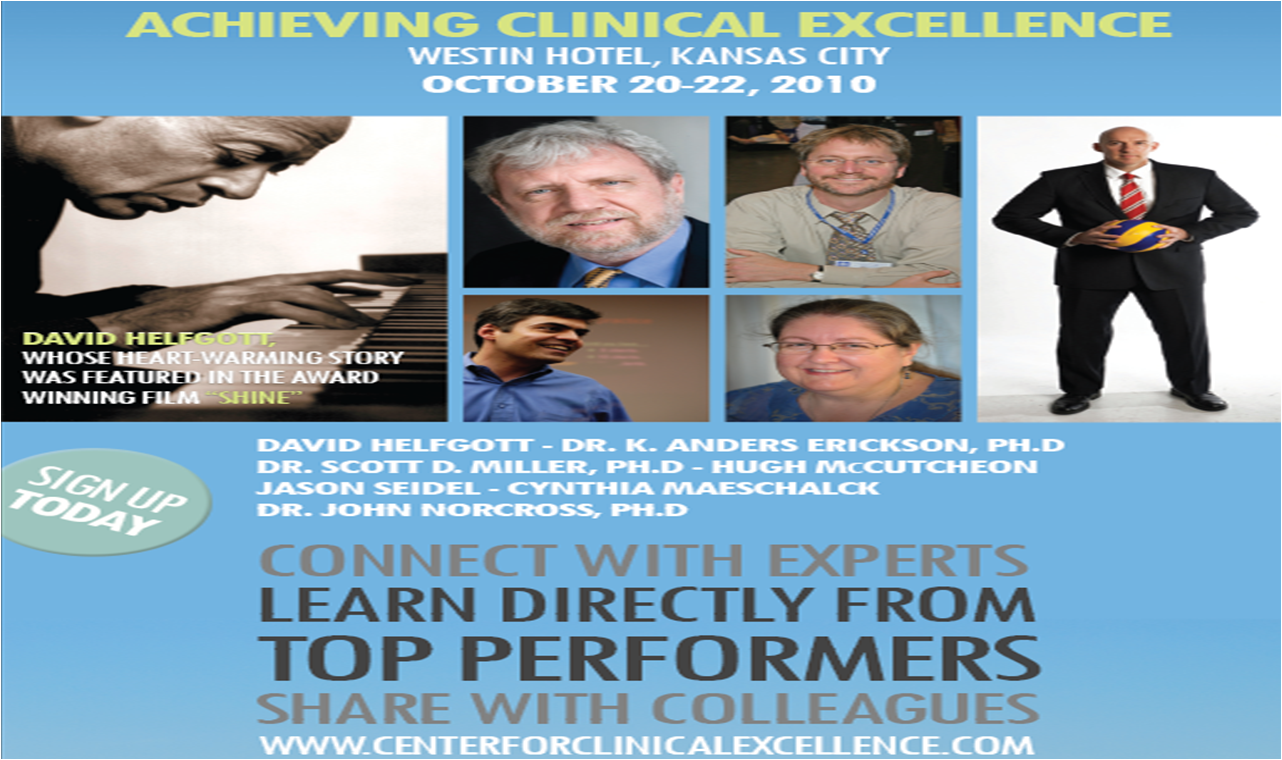It’s true. Adding to a growing literature showing that the person of the therapist is more important than theoretical orientation, years of experience, or discipline, a new study documents that clients are sensitive to the quality of their therapist’s life outside of treament. In short, they can tell when you are happy or not. Despite our best efforts to conceal it, they see it in how we interact with them in therapy. By contrast, therapists’ judgements regarding the quality of the therapy are biased by their own sense of personal well-being. The solution? Short of being happy, it means we need to check in with our clients on a regular basis regarding the quality of the therapeutic relationship. Multiple randomized clinical trials show that formally soliciting feedback regarding progress and the alliance improves outcome and continued engagement in treatment. One approach, “Feedback-Informed Treatment” is now listed on SAMHSA’s National Registry of Evidence-Based Programs and Practices. Step-by-step instructions and videos for getting started are available on a new website: www.pcomsinternational.com. Seeking feedback from clients not only helps to identify and correct potential problems in therapy, but is also the first step in pushing one’s effectiveness to the next level. In case you didn’t see it, I review the research and steps for improving performance as a therapist in an article/interview on the Psychotherapy.net website. It’s sure to make you happy!
The Importance of "Whoops" in Improving Treatment Outcome
“Ring the bells that still can ring,
Forget your perfect offering
There is a crack in everything,
That’s how the light gets in.”
Leonard Cohen, Anthem
Making mistakes. We all do it, in both our personal and professional lives. “To err is human…,” the old saying goes. And most of us say, if asked, that we agree whole heartedly with the adage–especially when it refers to someone else! When the principle becomes personal, however, its is much more difficult to be so broad-minded.
Think about it for a minute: can you name five things you are wrong about? Three? How about the last mistake you made in your clinical work? What was it? Did you share it with the person you were working with? With your colleagues?
Research shows there are surprising benefits to being wrong, especially when the maker views such errors differently. As author Alina Tugend points out in her fabulous book, Better by Mistake, custom wrongly defines a mistake as ” the failure of a planned sequence of mental or physical activities to achieve its intended outcome.” When you forget a client’s name during a session or push a door instead of pull, that counts as slip or lapse. A mistake, by contrast, is when “the plan itself is inadequate to achieve it’s objectives” (p. 11). Knowing the difference, she continues, “can be very helpful in avoiding mistakes in the future” because it leads exploration away from assigning blame to the exploring systems, processes, and conditions that either cause mistakes or thwart their detection.
Last week, I was working with a talented and energetic group of helping professionals in New Bedford, Massachusetts. The topic was, “Achieving Excellence: Pushing One’s Clinical Performance to the Next Level of Effectiveness.” As part of my presentation, I talked about becoming more, “error-centric” in our work; specifically, using ongoing measurement of the alliance to identify opportunities for improving our connection with consumers of behavioral health services. As an example of the benefits of making mistakes the focus of professional development efforts, I showed a brief video of Rachel Hsu and Roger Chen, two talented musicians who performed at the last Achieving Clinical Excellence (ACE) conference. Rachel plays a piece by Liszt, Roger one by Mozart. Both compositions are extremely challenging to play. You tell me how they did (by the way, Rachel is 8 years old, Roger. 9):
Following her performance, I asked Rachel if she’d made any mistakes during her performance. She laughed, and then said, “Yes, a lot!” When I asked her what she did about that, she replied, “Well, its impossible to learn from my mistakes while I’m playing. So I note them and then later practice those small bits, over and over, slow at first, then speeding up, until I get them right.”
After showing the video in New Bedford, a member of the audience raised his hand, “I get it but that whole idea makes me a bit nervous.” I knew exactly what he was thinking. Highlighting one’s mistakes in public is risky business. Studies documenting that the most effective clinicians experience more self-doubt and are more willing to admit making mistakes is simply not convincing when one’s professional self-esteem or job may be on the line. Neither is research showing that health care professionals who admit making mistakes and apologize to consumers are significantly less likely to be sued. Becoming error centric, requires a change in culture, one that not only invites discloure but connects it with the kind of support and structure that leads to superior results.
Creating a “whoops-friendly” culture will be a focus of the next Achieving Clinical Excellence conference, scheduled for May 16-18th, 2013 in Amsterdam, Holland. Researchers and clinicians from around the world will gather to share their data and experience at this unique event. I promise you don’t want to miss it. Here’s a short clip of highlights from the last one:
My colleague, Susanne Bargmann and I will also be teaching the latest research and evidence based methods for transforming mistakes into improved clinical performance at the upcoming FIT Advanced Intensive training in Chicago, Illinois. I look forward to meeting you at one of these upcoming events. In the meantime, here’s a fun, brief but informative video from the TED talks series on mistakes:
By the way, the house pictured above is real. My family and I visited it while vacationing in Niagara Falls, Canada in October. It’s a tourist attraction actually. Mistakes, it seems, can be profitable.
What is the Real Source of Effectiveness in Smoking Cessation Treatment? New Research on Feedback Informed Treatment
When it rains, it pours! So much news to relay regarding recent research on Feedback Informed Treatment (FIT). Just received news this week from ICCE Associate Stephen Michaels that research using the ORS and SRS in smoking cessation treatment is in print! A few days prior to that, Kelley Quirk sent a copy of our long-awaited article on the validity and reliability of the Group Session Rating Scale. On that very same day, the editors from the journal Psychotherapy sent proofs of an article written by me, Mark Hubble, Daryl Chow, and Jason Seidel for the 50th anniversary issue of the publication.
Let’s start with the validity and reliability study. Many clinicians have already downloaded and been using Group Session Rating Scale. The measure is part of the packet of FIT tools available in 20+ languages on both my personal and the International Center for Clinical Excellence websites. The article presents the first research on the validity and reliability of the measure. The data for the study was gathered at two sites I’ve worked with for many years. Thanks to Kelley Quirk and Jesse Owen for crunching the numbers and writing up the results! Since the alliance is one of the most robust predictors of outcome, the GSRS provides yet another method for helping therapists obtain feedback from consumers of behavior health services.
Moving on, if there were a Nobel Prize for patience and persistence, it would have to go to Stephen Michaels, the lead author of the study, Assessing Counsellor Effects on Quit Rates and Life Satisfactions Scores at a Tobacco Quitline” (Michael, Seltzer, Miller, and Wampold, 2012). Over the last four years, Stephen has trained Quitline staff in FIT, implemented the ORS and SRS in Quitline tobacco cessation services, gathered outcome and alliance data on nearly 3,000 Quitline users, completed an in-depth review of the available smoking cessation literature, and finally, organized, analyzed, and written up the results.
What did he find? Statistically significant differences in quit rates attributable to counselor effects. In other words, as I’ve been saying for some time, some helpers are more helpful than others–even when the treatment provided is highly manualized and structured. In short, it’s not the method that matters (including the use of the ORS and SRS), it’s the therapist.
What is responsible for the difference in effectiveness among therapists? The answer to that question is the subject of the article, “The Outcome of Psychotherapy: Yesterday, Today, and Tomorrow” slated to appear in the 50th anniversary issue of Psychotherapy. In it, we review controversies surround the question, “What makes therapy work?” and tip findings from another, soon-to-be-published empirical analysis of top performing clinicians. Stay tuned.
A Handy "Little Helper" for the Outcome Rating Scale: A Freebie from the ACE Conference Committee
.jpg)
This last week the planning committee for the upcoming Achieving Clinical Excellence (ACE) conference meet once again in Horsholm, Denmark. In the picture from left to right: Liz Plutt, Bill Andrews, myself, Rick Plutt (Conference Chair), and Bogdan Ion. Taking the photo was Susanne Bargmann.
The agenda for the three day event is now set: (1) one day pre-conference on feedback informed treatment (FIT); (2) two days of plenaries and presentations by an international group of clinicians, researchers, and educators.
.jpg)
On day one, the conference kicks off with a keynote address by the world’s “expert on expertise,” Dr. K. Anders Ericsson. Throughout the day, other speakers will translate Dr. Ericsson’s research into practical steps for enhancing the performance of mental health professionals, agencies, and systems of care.
Day two kicks off with a keynote address by Dr. Robbie Wagner addressing the question, “what barriers stand in the way of improving our effectiveness?” Once again, the rest of the day will be spent identifying solutions for the problems standing in the way of expertise and expert performance.
We still have several openings for presentations at the conference. If you have experiences or data related to: (1) measuring outcomes; (2) implementing feedback informed treatment; (3) the qualities of super effective clinicians or treatment approaches, then PLEASE click go to the ICCE website and submit a description for consideration.
It’ll be a fun, inspiring, and rewarding three days in Amsterdam. Don’t miss it! Register today and get the early bird special, saving you 100’s of dollars!
In the meantime, click on the link below to download a handy little tool for scoring the Outcome and Session Rating Scales. It’s a combination bookmark and 10 centimeter ruler.
The Achieving Clinical Excellence Conference CALL FOR PAPERS
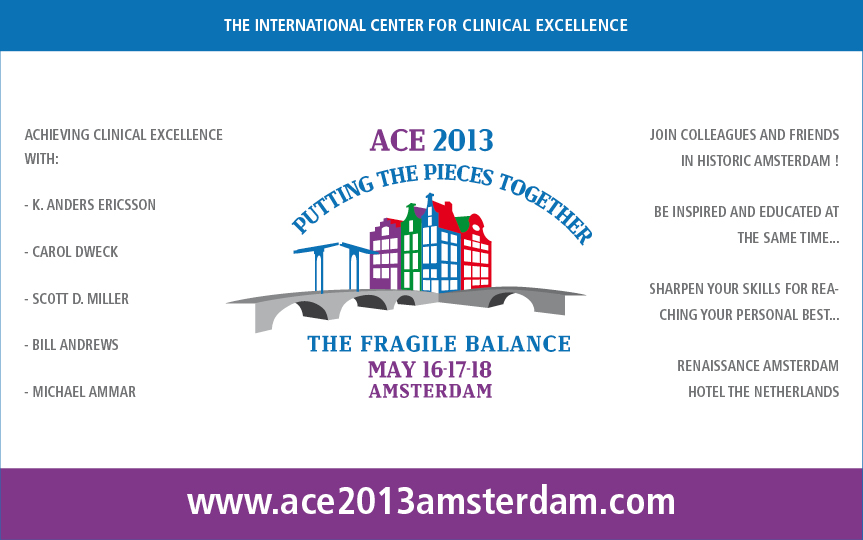
In October 2010, the first annual “Achieving Clinical Excellence” was held in Kansas City, Missouri. A capacity crowd joined leading experts on the subject of top performance for three days worth of training and inspiration. K. Anders Ericsson reviewed his groundbreaking research, popularized by Malcolm Gladwell and others. ICCE Director, Scott D. Miller translated the research into speciific steps for improving clinical performance. Finally, classical piansts David Helfgott, Rachel Hsu, and Roger Chen, demonstrated what can be accomplished when such evidence-based strategies are applied to the process of learning specific skills.
The ICCE is proud to announce the 2nd “ACE” conference to be held May 16th-18th, 2013 in Amsterdam, Holland. Join us for three educational, inspiring, and fun-filled days. Register today and receive a significant “Early Bird” discount. The ACE conference committee is also issuing an international “Call for Papers.” If you, your agency, or practice are committed to excellence, using outcomes to inform practice, or have published research on the subject, please visit the conference website to submit a proposal.
Here’s what attendees said about the last event:
The "Fragile Balance": Putting the Pieces together at the 2013 Achieving Clinical Excellence Conference in Amsterdam, Holland
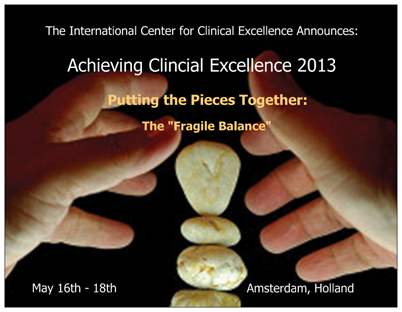
Dateline: May 8th, 2011
Copenhagen, Denmark
It is with great pleasure and high expectations that I announce the second “Achieving Excellence Conference” to be held in Amsterdam, Holland on May 16th-18th, 2013.
The title of the 2013 ACE conference is, “Putting the Pieces Together: The ‘Fragile Balance,'” emphasizing the steps, practices, and supports required for excellence in the field of behavioral health.
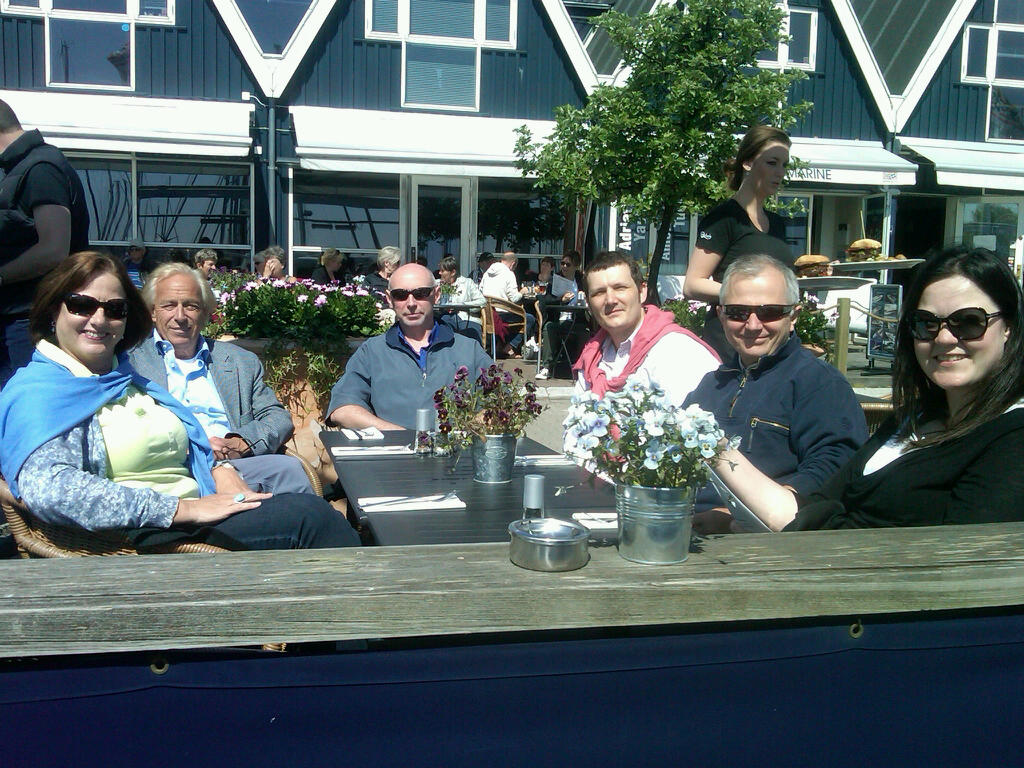
.jpg)
This last weekend, the organizing committe met in Horsholm, Denmark to begin planning the event. The 2013 conference chair is Dutch psychologist Rick Plutt (pictured on the left in the photo to the right). Committee members flew in from all over Europe and include ICCE associates (from left to right in the photo on the left) Liz Plutt (Holland), Rick Plutt (Holland), Anthony Jordan (Sweden), Bogdan Ion (Romania), Bill Andrews (UK), and Susanne Bargmann (Denmark).


Information about the event is already available on the official ACE 2013 Conference website. Registration will soon be available.
The committee has also issued a “Call for Papers” from clinicians, researchers, and policy makers interested in presenting at the event. Guidelines for submitting a proposal to present at the conference can be obtained by sending an email to: info@centerforclinicalexcellence.com.
Details regarding the event, including keynote presenters will be released shortly so stay tuned. In the meantime, make sure you watch the video highlights from the 2010 conference in Kansas City, Missouri:
More videos from the conference are available on the International Center for Clinical Excellence video channel.
Don’t wait until 2013 to begin improving the quality and outcome of your clinical work. The one and only, official “Training of Trainers” is open for registration. This hands on event is conducted by me and other ICCE Senior Associates. Space is limited to 35 participants. You can register by clicking the icon below.
Here’s what last year’s participants said about the “Training of Trainers”:
After the Thrill is Gone: Sustaining a Commitment to Routinely Seeking Feedback

Helsingor Castle (the setting for Shakespeare’s Hamlet)
Dateline: May 8th, 2010, Helsingor, Denmark
This weekend I’m in Denmark doing a two-day workshop on “Supershrinks” sponsored by Danish psychologist and ICCE Senior Associate and Trainer Susanne Bargmann. Just finished the first day with a group of 30 talented clinicians working diligently to achieve their personal best. The challenge, I’m increasingly aware, is sustaining a commitment to seeking client feedback over time once the excitement of a workshop is over. On the surface, the idea seems simple: ask the consumer. In practice however, it’s not easy. The result is that many practitioners who are initially enthusiastic lose steam, eventually setting aside the measures. It’s a serious concern given that available evidence documents the dramatic impact of routine outcome and alliance monitoring on outcome and retention in behavioral health.
Support of like-minded colleagues is one critical key for sustaining commitment “after the thrill is gone.” Where can you find such people? As I blogged about last week, over a thousand clinicians are connecting, sharing, and supporing each other on the web-based community of the International Center for Clinical Excellence (If you’re not already a member, click here to request your own personal (and free) invitation to join the conversation).
In the brief interview above, Susanne identifies a few additional steps that practitioners and agencies can take for making the process of seeking feedback successful over the long haul. By the way, she’ll be covering these principles and practices in detail in an afternoon workshop at the upcoming Achieving Clinical Excellence conference. Don’t miss it!
ICCE Membership Hits 1000!

Just yesterday, the membership of the International Center for Clinical Excellence burst through the 1000 mark, making it the largest community of behavioral health professionals dedicated to excellence and feedback informed treatment (FIT). And there’s more news…click on the video below.
Learning, Mastery, and Achieving One’s Personal Best

Dateline: Sunday, April 25th, 2010 Chicago, IL
There’s a feeling I get whenever I’m learning something new. It’s a combination of wonder and possibility. Even though I’ve been traveling and teaching full time for over 18 years, I still feel that get that feeling of excitement whenever I step on a plane: What will I see? Who will I meet? What will I learn? Move over Indiana Jones, you’ve got nothing on me!
On my desk right now are stacks of books on the subject of expertise and expert performance: The Talent Code: Greatness Isn’t Born. It’s Grown. Here’s How, The Genius in All of Us: Why Everything You’ve Been Told About Genetics, Talent, and IQ Is Wrong, The Cambridge Handbook of Creativity, The Psychology of Abilities, Competencies, and Expertise, Why We Make Mistakes: How We Look Without Seeing, Forget Things in Seconds, and Are All Pretty Sure We Are Way Above Average, and many, many more.

On the floor, arranged in neat little piles, are reams of research articles, newspaper clippings, and pages torn out of magazines. Literally, all on the same subject: how can we clinicians reliably achieve better results?
I’ve never been one to “settle” for very long. It’s the journey not the destination I find appealing. Thus, I began exploring the common factors when it became clear that treatment models contributed little if anything to outcome (click here to read the history of this transition). When I became convinced that the common factors held little promise for improving results in psychotherapy, I followed the lead of two my mentors, professor Michael Lambert (who I worked with as an undergraduate) and psychologist Lynn Johnson (who trained and supervised me), and began measuring outcome and seeking feedback. Now that research has firmly established that using measures of the alliance and outcome to guide service delivery significantly enhances performance (see the comprehensive summary of research to date below), I’ve grown restless again.
In truth, I find discussions about the ORS and SRS a bit, well, boring. That doesn’t mean that I’m not using or teaching others to use the measures. Learning about the tools is an important first step. Getting clinicians to actually use them is also important. And yet, there is a danger if we stop there.
Right now, we have zero evidence that measurement and feedback improves the performance of clinicians over time. More troubling, the evidence we do have strongly suggests that clinicians do not learn from the feedback they receive from outcome and alliance measures. Said another way, while the outcome of each particular episode of care improves, clinicians overall ability does not. And that’s precisely why I’m feeling excited–the journey is beginning…
…and leads directly to Kansas City where, on October 20-22nd, 2010, leading researchers and clinicians will gather to learn the latest, evidence-based information and skills for improving performance in the field of behavioral health. As of today, talented professionals from Australia, Sweden, Norway, Denmark, Germany, England, Israel, and the United States have registered for the international “Achieving Clinical Excellence” conference. Some common questions about the event include:
1. What will I learn?
How to determine your overall effectiveness and what specifically you can do to improve your outcomes.
2. Is the content new?
Entirely. This is no repeat of a basic workshop or prior conferences. You won’t hear the same presentations on the common factors, dodo verdict, or ORS and SRS. You will learn the skills necessary to achieve your personal best.
3. Are continuing education credits available?
Absolutely–up to 18 hours depending on whether you attend the pre-conference “law and ethics” training. By the way, if you register now, you’ll get the pre-conference workshop essentially free! Three days for one low price.
4. Will I have fun?
Guaranteed. In between each plenary address and skill building workshop, we’ve invited superior performers from sports, music, and entertainment to perform and inspire . If you’ve never been to Kansas City, you’ll enjoy the music, food, attractions, and architecture.
Feel free to email me with any questions or click here to register for the conference. Want a peak at some of what will be covered? Watch the video below, which I recorded last week in Sweden while “trapped” behind the cloud of volcanic ash. In it, I talk about the “Therapists Most Likely to Succeed.”
"What Works" in Holland: The Cenzo Experience
When it comes to healthcare, it can be said without risk of exaggeration that “revolution is in the air.” The most sweeping legislation in history has just been passed in the United States. Elsewhere, as I’ve been documenting in my blogs, countries, states, provinces, and municipalities are struggling to maintain quality while containing costs of the healthcare behemoth.
Back in January, I talked about the approach being taken in Holland where, in contrast to many countries, the healthcare system was jettisoning their government-run system in favor of private insurance reimbursement. Believe me, it is a change no less dramatic in scope and impact than what is taking place in the U.S. At the time, I noted that Dutch practitioners were, in response “’thinking ahead’, preparing for the change—in particular, understanding what the research literature indicates works as well as adopting methods for documenting and improving the outcome of treatment.” As a result, I’ve been traveling back and forth—at least twice a quarter–providing trainings to professional groups and agencies across the length and breadth of the country.
Not long ago, I was invited to speak at the 15th year anniversary of Cenzo—a franchise organization with 85 registered psychologist members. Basically, the organization facilitates—some would say “works to smooth”–the interaction between practitioners and insurance companies. In addition to helping with contracts, paperwork, administration, and training, Cenzo also has an ongoing “quality improvement” program consisting of routine outcome monitoring and feedback as well as client satisfaction metrics. Everything about this forward-thinking group is “top notch,” including a brief film they made about the day and the workshop. Whether you work in Holland or not, I think you’ll find the content interesting! If you understand the language, click here to download the 15th year Anniversary Cenzo newsletter.
Outcomes in New Zealand
Made it back to Chicago after a week in New Zealand providing training and consultation. As I blogged about last Thursday, the last two days of my trip were spent in Christchurch providing a two-day training on “What Works” for Te Pou–New Zealand’s National Centre of Mental Health Research, Information, and Workforce Development. Last year around this same time, I provided a similar training for Te Pou for managers and policy makers in Auckland. News spread and this year my contact at Te Pou, Emma Wood brought the training to the south island. It is such a pleasure to be involved with such a forward thinking organization.
Long before I arrived, leadership at Te Pou were promoting outcome measurement and feedback. Here’s a direct quote from their website:
Outcomes information can assist:
- service users to use their own outcomes data to reflect on their wellbeing and circumstances, talk to clinicians about their support needs and inform their recovery plans
- clinicians to use outcomes information to support their decision-making in day-to-day practice, monitoring change, better understanding the needs of the service user, and also to begin evaluating the effectiveness of different interventions
- planners and funders to assess population needs for mental health services and assist with allocation of resources policy and mental health strategy developments through nationally aggregated data.
Indeed, using outcome to inform mental health service delivery is a key aspect of the Past, Present, and Future: Vision Paper–a review of “what works” in care and a plan for improving treatment in the future. The site even publishes a quarterly newsletter Outcomes Matter. Take a few minutes and explore the Te Pou website. While you are there, be sure and download the pamphlet entitled, “A Guide to Talking Therapies.” As the title implies, this brief, easy-to-read text provides a non-nonsense guide to the various “talk therapies” for consumers (I took several copies home with me from the workshop).
Before ending, let me say a brief hello to the Clinical Practice Leaders from the Problem Gambling Foundation of New Zealand who attended the two-day training in Christchurch. The dedicated staff use an integrated public health and clinical model and are working to implement ongoing measurement of outcome and consumer feedback into service delivery. The website contains a free online library including fact sheets, research, and books on the issue of problem gambling that is an incredible resource to professionals and the public. Following the workshop, the group sent a photo that was taken of us together. From left to right, they are Wenli Zhang, me, Margaret Sloan, and Jude West.
Leading for a Change: The Training of Trainer’s (TOT) Chicago
I’m writing tonight from my hotel room at the River Rock Inn in Rockland, Ontario, Canada. For those of you who are not familiar with the area, it is a bilingual (French & English) community of around 9,000 located about 25 km west of Ottawa.
Today through Thursday, I’m working with the staff, supervisors, and agency administrators of Prescott-Russell Services to Children and Adults. The goal? Introduce the latest “cutting-edge” research on “what works” in behavioral health and initiate a system transformation project for this group that provides child protection, mental health, family violence, and development services in the area. The time spent with the first cohort of 125 direct services providers and supervisors went by, as they say, in “the blink of an eye.” Tomorrow, I’ll be repeating the same training for the rest of the crew. On Wednesday and Thursday I’ll meet with supervisors and administrators. Suffice it to say, it’s an incredible opportunity for me to take part in such a large and well executed service improvement project. In these lean economic times, I’m inspired by both the time and resources being directed at improving services offered to this area’s most needy. By the end of the week, I hope to have interviews posted with some of the providers and leaders working in the project.
While on the subject of training, let me share the brochure for this year’s “Training of Trainers” event in Chicago, Illinois during the second week of August. As in prior years, professionals from all over the world will be joining me and the state-of-the-art faculty for four intensive days of training on feedback-informed treatment (FIT). Please note: this is not an “advanced training” in FIT where time is spent reviewing the basics or covering content. Rather, the TOT curriculum has been designed to prepare participants to train others. Every day of the training, you will learn specific skills for training others, have an opportunity to practice those skills, and then receive detailed feedback from ICCE Senior Associates and Trainers Rob Axsen, Cynthia Maeschalck, and Jason Seidel. Anyway, read for yourself. Agencies both public and private, in the U.S. and abroad, are sending staff to the event to learn the skills necessary to lead transformation projects. Space is already limited so register soon.
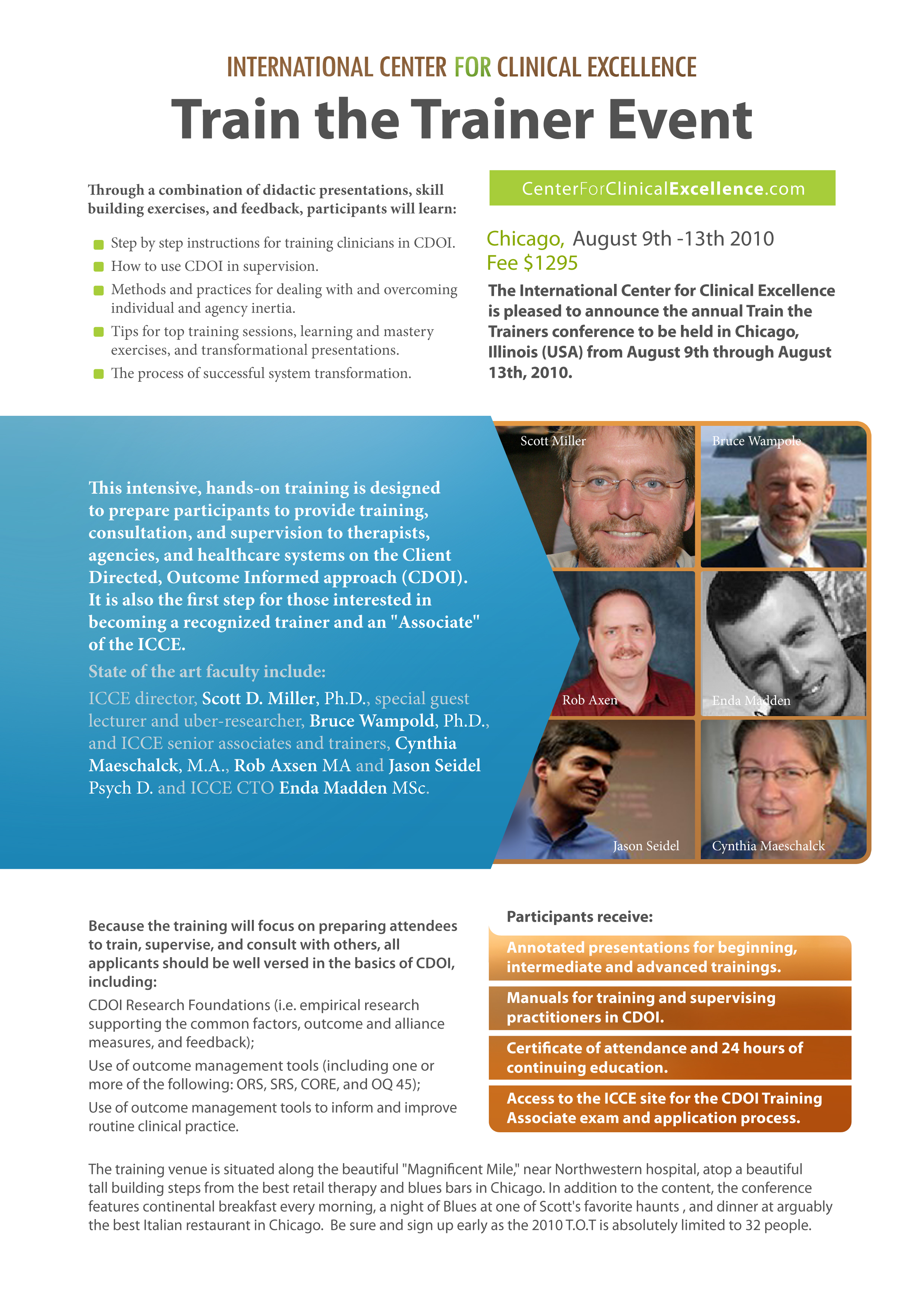
Click here to download the brochure to review or forward to colleagues
Deliberate Practice, Expertise, & Excellence
Later today, I board United flight 908 on my way to workshops scheduled in Holland and Belgium. My routine in the days leading up to an international trip is always the same. I slowly gather together the items I’ll need while away: computer (check); european electric adapter (check); presentation materials (check); clothes (check). And, oh yeah, two decks of playing cards and close up performance mat.
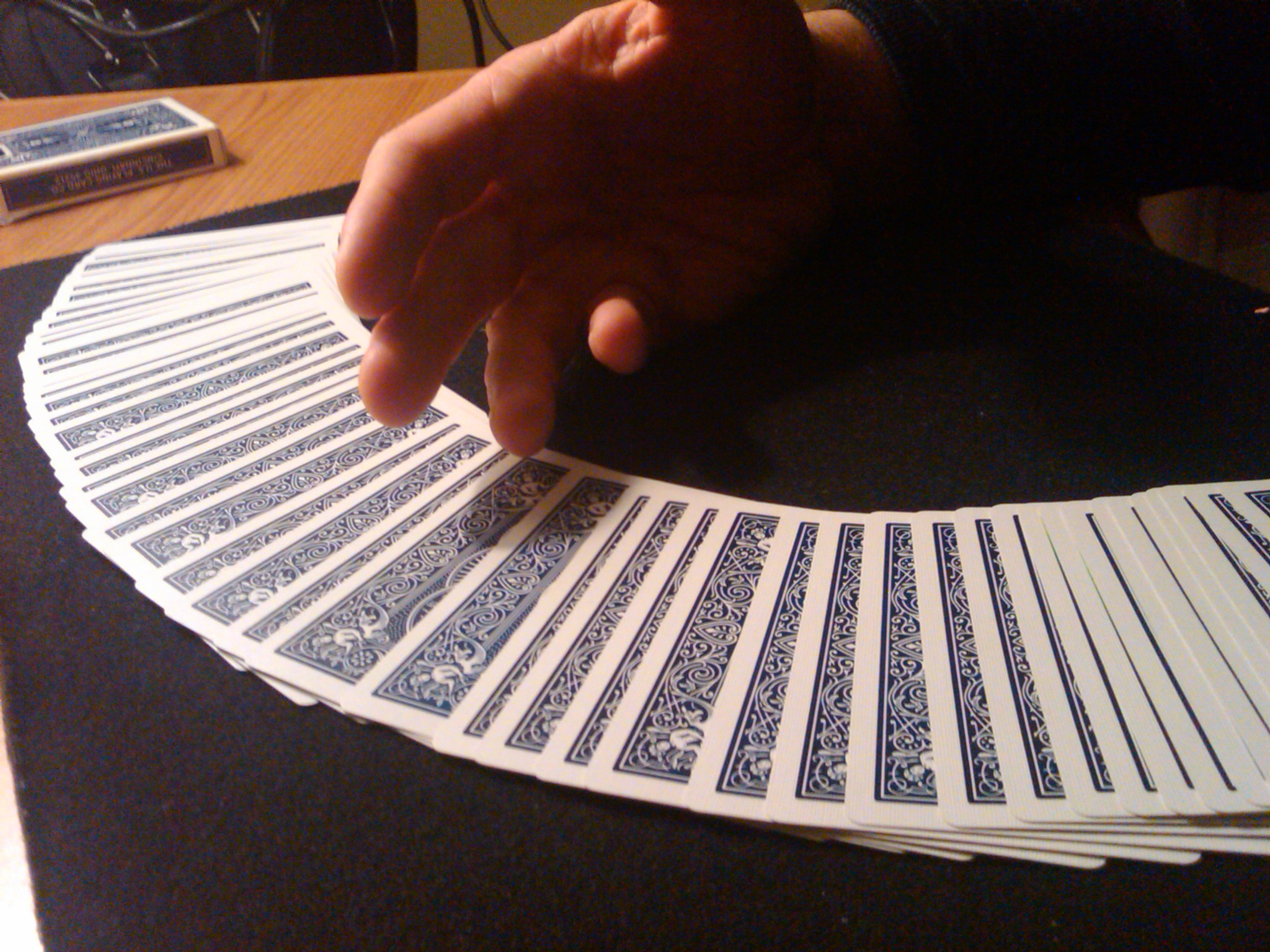
That’s me (pictured above) practicing a “ribbon spread” in my hotel room following a day of training in Marion, Ohio. It’s a basic skill in magic and I’ve been working hard on this (and other moves using cards) since last summer. Along the way, I’ve felt both hopeful and discouraged. But I’ve kept on nonetheless taking heart from what I’m reading about skill acquisition.
Research on expertise indicates that the best performers (in chess, medicine, music, sports, etc.) practice every day of the week (including weekends) for up to four hours a day. Sounds tiring for sure. And yet, the same body of evidence shows that world class performers are able to sustain such high levels of practice because they view the acquisition of expertise as a long-term process. Indeed, in a study of children, researcher Gary McPherson found that the answer to a simple question determined the musical ability of kids a year later: “how long do you think you’ll play your instrument?” The factors that were shown to be irrelevant to performance level were: initial musical ability, IQ, aural sensitivity, math skills, sense of rhythm, income level, and sensorimotor skills.
The type of practice also matters. When researchers Kitsantas and Zimmerman studied the skill acquisition of experts, they found that 90% of the variation in ability could be accounted for by how the performers described their practice; the types of goals they set, how they planned and executed strategies, self-monitored, and adapted their performance in response to feedback.
So, I take my playing cards and close-up mat with me on all of my trips (both domestic and international). I don’t practice on planes. Gave that up after getting some strange stares from fellow passengers as they watched me repeat, in obsessive fashion, the same small segment of my performance over, and over, and over again. It only made matters worse if they found out I was a psychologist. I’d get that “knowing look,” that seemed to say, “Oh yeah.” Anyway, I also managed to lose a fair number of cards when the deck–because of my inept handling while trying to master some particular move–went flying all over the cabin (You can imagine why I’ve been less successful in keeping last year’s New Year resolution to learn to play the ukelele).
Once I’m comfortably situated in my room, the mat and cards come out and I work, practice a specific handling for up to 30 minutes followed by a 15-20 minute break. Believe it or not, learning–or perhaps better said, attempting to learn–magic has really been helpful in understanding the acquisition of expertise in my chosen field: psychology and psychotherapy. Together with my colleagues, we are translating our experience and the latest research on expertise into steps for improving the performance and outcome of behavioral health services. This is, in fact, the focus of the newest workshop I’m teaching, “Achieving Clinical Excellence.” It’s also the organizing theme of the ICCE Achieving Clinical Excellence conference that will be held in Kansas City, Kansas in October 2010. Click on the photo below for more information.
In the meantime, check out the two videos I’ve uploaded to ICCETV featuring two fun magic effects. And yes, of course, feedback is always appreciated!
"What Works" in Norway
Dateline: Tromso, Norway
Place: Rica Ishavshotel

For the last two days, I’ve had the privilege of working with 125+ clinicians (psychotherapists, psychologists, social workers, psychiatrists, and addiction treatment professionals) in far northern Norway. The focus of the two-day training was on “What Works” in treatment, in particular examining what constitutes “evidence-based practice” and how to seek and utilize feedback from consumers on an ongoing basis. The crowd was enthusiastic, the food fantastic, and the location, well, simply inspiring. Tomorrow, I’ll be working with a smaller group of practitioners, doing an advanced training. More to come.
New Year’s Resolutions: Progress Report and Future Plans

One year ago today, I blogged about my New Year’s resolution to “take up the study of expertise and expert performance.” The promise marked a significant departure from my work up to that point in time and was not without controversy:
“Was I no longer interested in psychotherapy?”
“Had I given up on the common factors?
“What about the ORS and SRS?” and was I abandoning the field and pursue magic as a profession?”
Seriously.
The answer to all of the questions was, of course, an emphatic “NO!” At the same time, I recognized that I’d reached an empirical precipice–or, stated more accurately, dead end. The common factors, while explaining why therapy works did not and could never tell us how to work. And while seeking and obtaining ongoing feedback (via the ORS and SRS) had proven successful in boosting treatment outcomes, there was no evidence that the practice had a lasting impact on the professionals providing the service.
Understanding how to improve my performance as a clinician has, as is true of many therapists, been a goal and passion from the earliest days of my career. The vast literature on expertise and expert performance appeared to provide the answers I’d long sought. In fields as diverse as music and medicine, researchers had identified specific principles and methods associated with superior performance. On January 2nd, 2009, I vowed to apply what I was learning to, “a subject I know nothing about…put[ting] into practice the insights gleaned from the study of expertise and expert performance.”
The subject? Magic (and the ukulele).
How have I done? Definitely better than average I can say. In a column written by Barbara Brotman in today’s Chicago Tribune, psychologist Janine Gauthier notes that while 45% of people make New Year’s resolutions, only 8% actually keep them! I’m a solid 50%. I am still studying and learning magic–as attendees at the 2009 “Training of Trainers” and my other workshops can testify. The uke is another story, however. To paraphrase 1988 Democratic vice-presidential candidate, Lloyd Bentsen , “I know great ukulele players, and Scott, you are no Jake Shimabukuro.”
I first saw Jake Shimabukuro play the ukulele at a concert in Hawaii. I was in the islands working with behavioral health professionals in the military (Watch the video below and tell me if it doesn’t sound like more than one instrument is playing even though Jake is the only one pictured).
Interestingly, the reasons for my success with one and failure with the other are as simple and straightforward as the principles and practices that researchers say account for superior (and inferior) performance. I promise to lay out these findings, along with my experiences, over the next several weeks. If you are about to make a New Year’s resolution, let me give you step numero uno: make sure your goal/resolution is realistic. I know, I know…how mundane. And yet, while I’ve lectured extensively about the relationship between goal-setting and successful psychotherapy for over 15 years, my reading about expert performance combined with my attempts to master two novel skills, has made me aware of aspects I never knew about or considered before.
Anyway, stay tuned for more. In the meantime, just for fun, take a look at the video below from master magician Bill Malone. The effect he is performing is called, “Sam the Bellhop.” I’ve been practicing this routine since early summer, using what I’ve learned from my study of the literature on expertise to master the effect (Ask me to perform it for you on break if you happen to be in attendance at one of my upcoming workshops).
Achieving Clinical Excellence: The Conference
A few weeks ago, I announced the first International “Achieving Clinical Excellence” (ACE) conference to be held at the Westin Hotel in Kansas City, Missouri on October 20-22nd, 2010. You can now register for this and all other ICCE events, by clicking here. Through a variety of keynote addresses and workshops, participants will learn the “science and steps” to excellence in clinical practice. Attendees will also meet and learn directly from internationally ranked performers from a variety of professions, including medicine, science, music, entertainment, and sports. I do hope you’ll join us in Kansas City for three days of science, skill building, and inspiration.
In the meantime, I wanted to tell you a bit about one of the conference’s keynote speakers, K. Anders Ericsson, Ph.D. As anyone who has been following my blog knows, Dr. Ericsson is the editor of the massive and influential “Cambridge Handbook of Expertise and Expert Performance.” He is an internationally known writer, researcher, and speaker who is commonly referred to as “the expert on experts.”
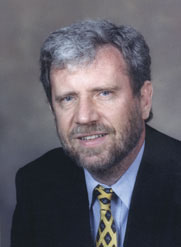
Practice-Based Evidence Goes Mainstream
 For years, my colleagues and I have been using the phrase “practice-based evidence” to refer to clinicians’ use of real-time feedback to develop, guide, and evaluate behavioral health services. Against a tidal wave of support from professional and regulatory bodies, we argued that the “evidence-based practice”–the notion that certain treatments work best for certain diagnosis–was not supported by the evidence.
For years, my colleagues and I have been using the phrase “practice-based evidence” to refer to clinicians’ use of real-time feedback to develop, guide, and evaluate behavioral health services. Against a tidal wave of support from professional and regulatory bodies, we argued that the “evidence-based practice”–the notion that certain treatments work best for certain diagnosis–was not supported by the evidence.
Along the way, I published, along with my colleagues, several meta-analytic studies, showing that all therapies worked about equally well (click here to access recent studies children, alcohol abuse and dependence, and post-traumatic stress disorder). The challenge, it seemed to me, was not finding what worked for a particular disorder or diagnosis, but rather what worked for a particular individual–and that required ongoing monitoring and feedback. In 2006, following years of controversy and wrangling, the American Psychological Association, finally revised the official definition to be consistent with “practice-based evidence.” You can read the definition in the May-June issue of the American Psychologist, volume 61, pages 271-285.
Now, a recent report on the Medscape journal of medicine channel provides further evidence that practice-based evidence is going mainstream. I think you’ll find the commentary interesting as it provides compelling evidence that an alternative to the dominent paradigm currently guiding professional discourse is taking hold. Watch it here.




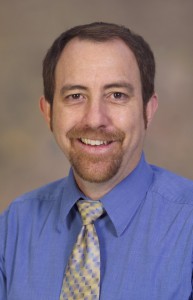
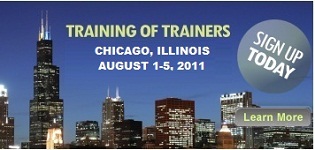
.png)
